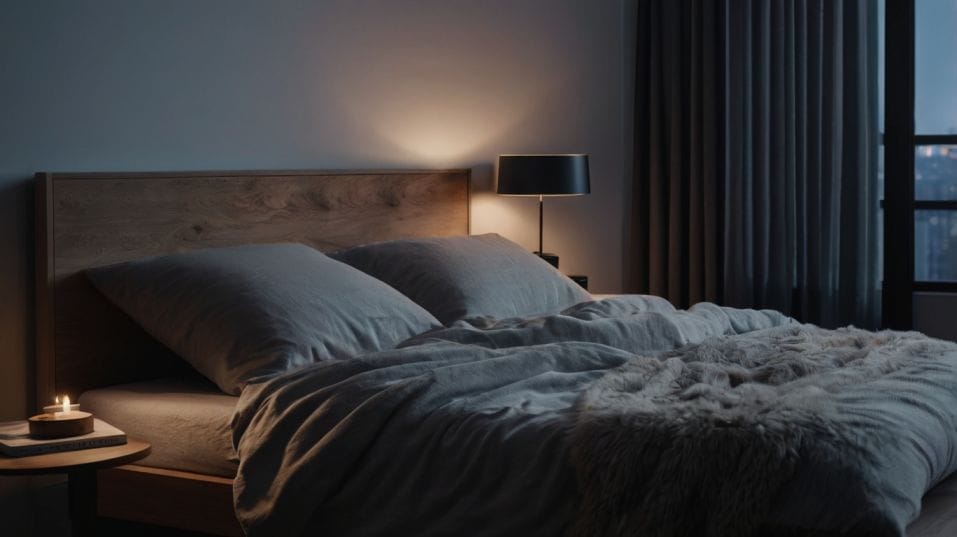When Snoring Isn’t Just Snoring: Know the Red Flags
Think snoring is harmless? Think again. Learn how to spot the signs, fix the cause, and finally get deep, restorative sleep—starting tonight.

Ever wonder if your snoring is secretly sabotaging your sleep? That nightly noise might be more than just an annoyance—it could be draining your energy, clouding your focus, and slowing your recovery.
Snoring is one of the clearest signals your body sends when sleep isn’t working right. And if you’re here to feel sharper, recover faster, or finally wake up refreshed, it’s time to stop ignoring the sound and start fixing what’s behind it.
The Real Story Behind Snoring
Snoring happens when air has trouble moving through your upper airway while you sleep. As airflow becomes restricted, the tissues in your throat vibrate. That’s the sound you—or your partner—hears.
It might be soft. It might rattle the walls. But here’s the problem: that vibration means resistance. Your body is working harder just to breathe. And that effort? It’s interfering with the deep, restorative stages of sleep your brain and body rely on.
Snoring doesn’t always mean you have a serious sleep disorder. But persistent, loud, or positional snoring is often one of the earliest signs that your sleep isn’t as deep or restorative as it should be.
If you’re waking up exhausted, dragging through the afternoon, or feeling like your workouts and brainpower just aren’t delivering the way they should, it’s time to stop brushing snoring off as “normal.”

How to Spot a Snoring Problem Early
Not all snoring is a red flag. But the context around it matters. If snoring is happening every night—or multiple times a week—it’s probably not just due to allergies or a few drinks.
Here’s what to watch for:
- You feel tired when you wake up, no matter how early you went to bed.
- You wake up with a dry mouth or sore throat, which means you’re mouth-breathing overnight.
- You’re frequently waking to pee—that can be linked to sleep fragmentation.
- You feel mentally foggy, slow to focus, or unmotivated during the day.
- Your partner hears you gasping, choking, or pausing between breaths.
- You snore loudest while lying on your back, and it gets better when you’re on your side.
These are all signs your breathing may be disrupted during sleep. The deeper implication? Your brain and body aren't getting enough oxygen.
That lowers the quality of your sleep, which in turn affects your mood, metabolism, recovery, and long-term health.
Even if you don’t fully wake up during the night, these interruptions can block you from hitting deep sleep and REM cycles—the phases where hormone regulation, tissue repair, and memory consolidation take place.
Why You Can’t Just Ignore It
If you care about performance, recovery, or even just feeling sharper at work, your sleep has to deliver. Snoring that interferes with airflow isn’t just annoying—it’s inefficient. And sleep efficiency matters.
Think of it this way: you can spend eight hours in bed, but if you’re only getting five hours of high-quality, uninterrupted sleep, you’re shortchanging your recovery.
And no supplement, smoothie, or productivity hack can fully replace that.
Plus, snoring usually gets worse over time, especially if you don’t change the underlying habits or environment that contribute to it.
What starts as occasional noise can turn into chronic sleep disruption, dragging down your energy and resilience bit by bit.
Practical Fixes That Actually Work
You don’t need to go straight to a sleep clinic to start making changes. There’s a lot you can do right now to cut down on snoring and improve airflow during sleep—often without turning your life upside down.
Sleep Position
Back sleeping tends to worsen snoring. That’s because gravity pulls your tongue and soft palate backward, narrowing your airway.
Try sleeping on your side instead. A body pillow can help you stay in position, and some people benefit from wedge pillows that elevate the upper body slightly.
Optimize Your Bedroom Air
Allergens, dust, and dry air can make it harder to breathe freely through your nose. If you’re congested at night, try:
- Running a HEPA filter in your room
- Using a humidifier (especially in winter)
- Rinsing your sinuses with a saline spray or neti pot before bed
Clear nasal passages help reduce reliance on mouth breathing, which is a major contributor to snoring.
Dial Back Evening Habits
Alcohol, sedatives, and large meals before bed all relax the muscles in your throat. That can make snoring worse and increase the chance of breathing disruptions during sleep.
Try cutting off food and drinks at least two hours before bed. You’ll sleep lighter and breathe easier.
Watch the Weight Around Your Neck
Extra fat around the neck and jaw compresses your airway when you lie down. You don’t need to hit an extreme body comp goal, but dropping even a small amount of weight can lead to noticeable improvements in snoring and sleep quality.
Strengthen Your Airway Muscles
This one flies under the radar, but it works. Simple oral exercises—like repeatedly pushing your tongue to the roof of your mouth or making exaggerated vowel sounds—can strengthen the muscles in your throat and reduce snoring over time.
Some people see results in as little as a few weeks.
Tech That Works While You Sleep
Smart sleep trackers, snore-monitoring apps, and even some smart pillows can detect and respond to snoring. Some vibrate gently when you roll onto your back. Others record audio so you can actually hear what’s happening during the night.
You don’t have to get obsessed with tracking, but using tech for a week or two can give you helpful insights. You’ll learn whether your snoring is mild or frequent, if it’s tied to sleep position, and how changes in your routine affect it.
For some people, this kind of biofeedback is what finally gets them to make—and stick to—better sleep habits.
When to Bring In a Pro
If snoring is loud, persistent, or paired with other symptoms like gasping, waking up suddenly, or falling asleep during the day, it’s smart to talk to a sleep specialist.
Many offer virtual assessments and at-home sleep studies now—so no, you don’t need to spend the night in a lab.
A professional diagnosis can open up more tailored solutions, from nasal devices to nighttime airway support systems. But even without a diagnosis, the steps you take now can significantly improve how you sleep and feel.
Final Thoughts
Snoring isn’t something to brush off or laugh away. It’s feedback from your body—and often, a clear sign that your sleep could be working a lot harder for you.
Whether you’re chasing better recovery, mental clarity, or just want to feel more human in the morning, starting with your breathing is smart. So don’t wait.
Change your sleep position. Clean up your sleep environment. Be more intentional about what you do before bed. Track your progress. See what shifts. You don’t have to overhaul everything. You just have to start.
Better sleep isn’t complicated. But it is earned. Start earning yours tonight.




